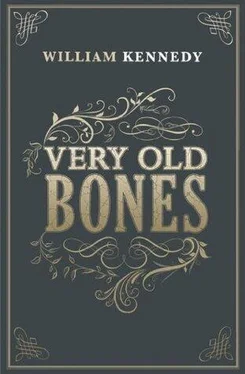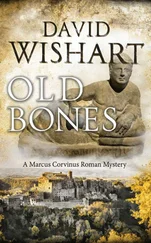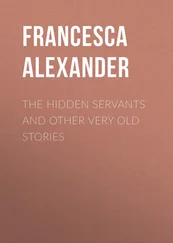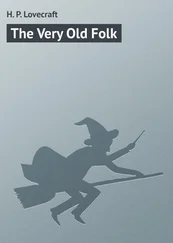Molly and Giselle: A Colloquy, September, 1954
“I must tell you about love,” Molly said.
“I must tell you about marriage,” Giselle said.
“You seem to know nothing about love.”
“I know everything.”
“It would not seem so.”
“Peter loves you.”
“And I him. But he loved Julia more. I wonder did he ever love Claire.”
“And Orson loves you.”
“And I him,” said Molly.
“I haven’t loved much in my life, but I know I love Orson with a full heart,” Giselle said.
“It would not seem so.”
“You should know me, should be in my head. Then you would understand.”
“You left him alone last year.”
“We’d been apart for six months, but even so we were always together.”
“It would not seem so.”
“You are old. You don’t understand the young.”
“You must never leave them alone for long if you love them,” Molly said.
“Then you live for them, not yourself.”
“You seem to know nothing about love.”
“You should have seen us together.”
“It looks alike sometimes. It looks alike.”
“You should have seen us together at the Plaza.”
“You were not together then.”
“But we were,” Giselle said. “Even there in The Candy Box with his stripper I felt no jealousy. There was a woman in Germany he went with one night, and he must have had others in New York, but I was never jealous of any of them. But this night I loved him and yet I was jealous of the vision he had of me, for it wasn’t me. That loving, successful, talented, noble woman, that was his invention of me. Orson hallucinating again. Orson of the brilliant imagination. Orson the fabulous lover, like none of the others. Orson the marvelous, loyal dog of a man.”
“And that is what you think love is?” Molly asked.
“I knew he might go away from me, but I also knew it wasn’t me he was leaving but the idea of me. And when I looked at his face I wanted to photograph what I saw. There was an uncertainty in his eye, a calmness, with that old wildness banished. There was something in him I didn’t understand.”
“As he didn’t understand you.”
“When we left The Candy Box after the shooting we took a cab back to the Plaza. He saw me to the elevator, then went out for a walk, to clear his brain, he said. He didn’t come back, and after an hour I feared he wouldn’t, so I got dressed again and scoured the lobby and the hotel bars, because I couldn’t believe he’d left me. I preferred the Life editor’s apartment, where my things were, if I was going to spend the night alone, but I still thought there was a small chance Orson would return. And I knew he knew I’d wait for him in the hotel. And so I did. I phoned Peter and found Orson had neither been there nor called. Peter said he knew an all-night bar where Orson sometimes went and offered to go there alone, or with me if I wanted. He said he’d call Claire, but I knew that would achieve nothing, and it did.”
“We were up at Saratoga Lake for three weeks. Mama was dead six months and it was a suffocating summer. We were sitting on the veranda talking about I don’t know what, and I saw that a new arrival, a good-looking fellow who had struck up a conversation with Sarah yesterday, was talking with her again. Then I saw a bird fly into a tree on the lawn, and it must’ve hit something, because it fell to the ground. I ran out to get it and picked it up and started to cry. The newcomer squatted down beside me and said, ‘May I see it?’ And I showed him this beautiful creature that he said was a cedar waxwing. ‘It seems to have an injured wing,’ he said. ‘We can help him.’ I asked how that was possible and he said, ‘We’ll keep him alive while he gets well.’ And that’s what we did for the rest of the week. We fed him and made a nest for him in the birdcage the hotel gave us and he became the pet of the guests. I loved him so, that little creature. Everybody came to my room to see him. We took him out of the cage and he did fly a little inside the room at the end of the week, but not very well. On the tenth day he seemed ready and, when I carried him to the veranda, a dozen guests and waitresses came out to watch him go. I released him over the porch railing and he flew so well, right up into the same tree he’d fallen from. We were all so happy. He perched there in the tree for a minute and then he fell again, not injured, but dead.”
“Orson was gone two more nights before we found him. Peter had the idea to call Walker Pettijohn, Orson’s editor, who suggested looking in Meriwether Macbeth’s apartment. He said Orson sometimes worked there among Macbeth’s papers that Macbeth’s widow still kept intact, though she no longer lived there. And Orson was there all right, and as close to death as he ever will be until his time comes. He was in an alcoholic coma, five whiskey bottles, all empty, strewn around the room. Peter lifted him up and slapped his face but he didn’t come to, didn’t react at all. Death in life. And if he did live he wouldn’t remember anything of this moment. I went out to a pay phone and called the ambulance.”
“It was sad that the bird died. I cried so hard. But I’ve been grateful to it ever since, because that’s how I met Walter. The cedar waxwing introduced us. Walter picked the dead bird up and took it into the hotel and wrapped it in a handkerchief and put it on ice and we called around till we found a place, down home in Albany, that stuffed birds. We drove down together and gave the waxwing to the little man, who said he’d never stuffed such a small bird before, usually folks only stuff the big ones they shoot, owls and hawks, or their pet parrots. I still have the bird. I always bring it when I come up here.”
“Who is Walter?”
“Walter Mangan, my husband. He taught Latin in a boys’ high school. He died in 1937.”
“And you miss him still.”
“We were so in love. Nobody loves you like an Irishman. He read me poetry about the bird.
“ ‘. . A sparrow is dead, my lady’s sparrow,
my own lady’s delight, her sweetest plaything,
dear to her as her eyes — and dearer even. .
I’ll attend you, O evil gods of darkness.
All things beautiful end in you forever.
You have taken away my pretty sparrow,
Shame upon you. And, pitiful poor sparrow,
it is you that have set my lady weeping,
Dear eyes, heavy with tears and red with sorrow.’ ”
“I went mad for Orson when we met. He wasn’t like anybody else I’d ever known. He made me laugh and he was smart and he was crazy and I loved it.”
“You sent him home alone.”
“He was sick and I knew he’d get well in New York. I had a chance at a career, and I knew if I had to nurse him and abandon the career I’d hate him. And what kind of marriage would that turn into?”
“Walter was never sick. You must never leave them alone for long. You would’ve gotten your career.”
“Did you ever leave Walter alone?”
“Did I ever leave Walter alone.”
“Orson left me alone and then he went off to drink himself into oblivion. He stole the world for me, put himself in jeopardy, facing jail, really, and then he went off to die. I love him so for that.”
“You love that he wanted to die for you?”
“He wanted to die for the image of me. He was too crazy to see I was only a bright, immature woman out to save herself, which is really all I knew how to do. He wanted to make me into a goddess and I helped him, because I loved the idea of such a man, and loved what his love did to me.”
“But the love was a lie.”
“You should have seen us in bed.”
“But you didn’t stay in his bed.”
“No.”
Читать дальше












